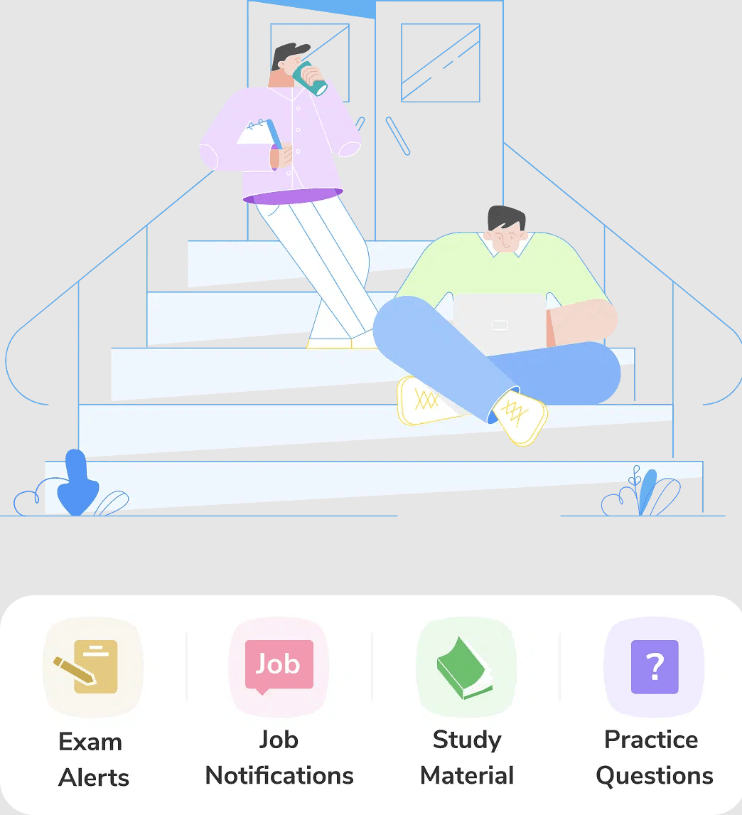Post Name : UGC NET Education Syllabus 2024
Post Date : 01 February , 2024
Post Description : The UGC NET Education Syllabus 2024 has been updated by the University Grants Commission. The UGC NET Education Syllabus 2024 comprehensively describes each of the 10 major units covered in Paper 2, such as Educational Management, Administration and Leadership, Learner and the Learning Process, History of Education, Politics and Economics, etc.,
UGC NET Education Syllabus 2024 Overview
The National Testing Agency (NTA) will conduct the UGC NET 2024 examination, which is held twice a year at the national level. The exam is conducted online and is applicable for the recruitment of Assistant Professors and candidates pursuing Junior Research Fellowship (JRF).
| UGC NET Education Syllabus 2024 Overview | |
|---|---|
| Conducting Body | National Testing Agency (NTA) |
| Exam Name | UGC NET 2024 |
| Post Category | UGC NET Education Syllabus 2024 |
| Posts | Assistant Professor and Junior Research Fellowship (JRF) |
| Exam Level | National |
| Exam Frequency | Twice a year |
| Mode of Exam | Online |
| UGC NET Exam Date 2024 | Between June 10 to 21, 2024 |
| Medium of Exam | English and Hindi |
| Time Duration | 3 Hours |
| Number of Papers and Total Marks |
|
| Negative Marking | No Negative Marking |
| Exam Helpdesk No. | 0120-6895200 |
| Official Website | https://ugcnet.nta.nic.in/ |
UGC NET Education Syllabus 2024 Unit Wise
The UGC NET Education Syllabus 2024 is organized unit-wise, providing comprehensive coverage of key topics. Here is an overview of the UGC NET Education Syllabus 2024 Unit Wise.
| UGC NET Education Syllabus 2024 Unit Wise | |
|---|---|
| Unit Name | Topics |
| Unit 1: Education Studies |
|
| Unit 2: History, Politics, and Economics of Education |
|
| Unit 3: Learner and Learning Process | Growth and Development
Approaches to Intelligence from Unitary to Multiple
Principles and Theories of Learning
Guidance and Counselling
|
| Unit 4: Teacher Education | Teacher Education
Understanding Teacher Education
Modes of In-service Teacher Education
Teaching as a Profession
|
| Unit 5: Curriculum Studies |
|
| Unit 6: Research in Education |
|
| Unit 7: Pedagogy, Andragogy, and Assessment |
|
| Unit 8: Technology for Education | Educational Technology
Systems Approach Instructional Design
Emerging Trends in E-learning
Use of ICT in Evaluation
|
| Unit 9: Educational Management, Administration and Leadership |
|
| Unit 10: Inclusive Education |
|
UGC NET Education Syllabus 2024 Important Topics
To effectively cover the UGC NET Education Syllabus 2024, candidates should give priority to having a strong grasp on the key topics of the syllabus. Here we provide a comprehensive list of UGC NET Education Syllabus 2024 Important Topics.
- Theories of Learning
- Educational Psychology and Educational Technology
- Curriculum Development and Evaluation
- Educational Administration and Management
- Philosophical and Sociological Foundations of Education
- Teacher Education and Professional Development
- Inclusive Education
- Research Methods in Education
- Educational Policies and Reforms
- Educational Philosophy and Ethics, etc.
UGC NET Education Exam Pattern 2024
The UGC NET Education Exam Pattern 2024 has been set by the National Testing Agency (NTA). As per the latest exam pattern, the UGC NET 2024 exam consists of two papers: Paper 1 and Paper 2.
| UGC NET Education Exam Pattern 2024 | |||
|---|---|---|---|
| Paper | Sections | Number of Questions | Maximum Marks |
| Paper 1 | Teaching Aptitude, Research Aptitude, Reading Comprehension, Communication, Reasoning (including Maths, Logical Reasoning, Data Interpretation, Information & Communication Technology (ICT), People & Environment, Higher Education System: Governance, Polity & Administration | 50 | 100 |
| Paper 2 | Education: | 100 | 200 |
UGC NET Education Syllabus 2024 Minimum Qualifying Marks
UGC NET 2024 prescribes the minimum qualifying marks. The minimum qualifying marks for the examination are determined based on category-wise criteria. Here is an overview of UGC NET Education Syllabus 2024 Minimum Qualifying Marks
| UGC NET Education Syllabus 2024 Minimum Qualifying Marks | |
|---|---|
| Category | Qualifying Marks |
| General | 40% |
| OBC/SC/ST | 35% |


